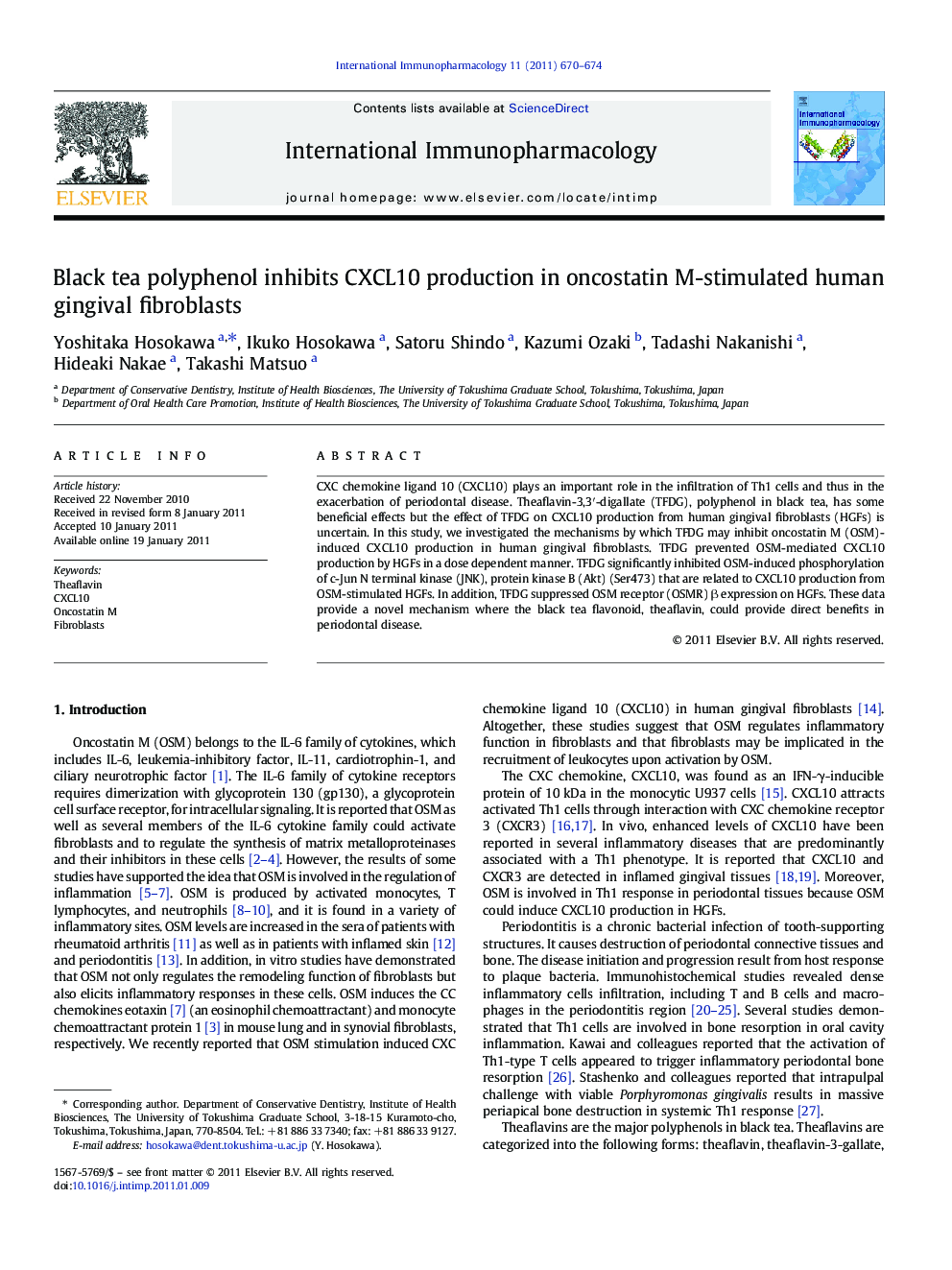| Article ID | Journal | Published Year | Pages | File Type |
|---|---|---|---|---|
| 2541731 | International Immunopharmacology | 2011 | 5 Pages |
CXC chemokine ligand 10 (CXCL10) plays an important role in the infiltration of Th1 cells and thus in the exacerbation of periodontal disease. Theaflavin-3,3′-digallate (TFDG), polyphenol in black tea, has some beneficial effects but the effect of TFDG on CXCL10 production from human gingival fibroblasts (HGFs) is uncertain. In this study, we investigated the mechanisms by which TFDG may inhibit oncostatin M (OSM)-induced CXCL10 production in human gingival fibroblasts. TFDG prevented OSM-mediated CXCL10 production by HGFs in a dose dependent manner. TFDG significantly inhibited OSM-induced phosphorylation of c-Jun N terminal kinase (JNK), protein kinase B (Akt) (Ser473) that are related to CXCL10 production from OSM-stimulated HGFs. In addition, TFDG suppressed OSM receptor (OSMR) β expression on HGFs. These data provide a novel mechanism where the black tea flavonoid, theaflavin, could provide direct benefits in periodontal disease.
